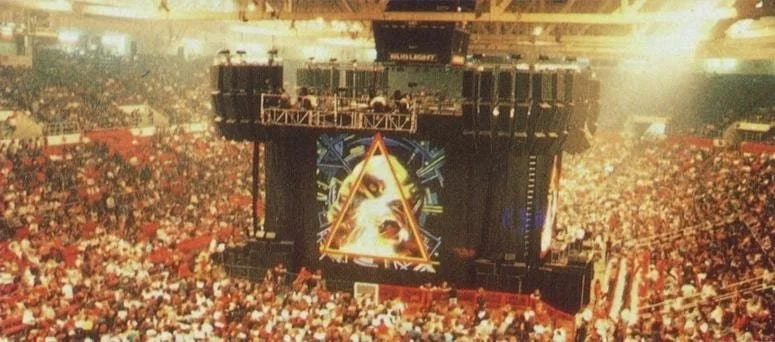666 : Dynamic pricing. The Future or Pure Farce?
Currently, you can get a ticket on Ticketmaster for Slipknot’s much anticipated 25th anniversary tour for around £220. That’s not a VIP ticket or a resale one, that is a bog-standard ticket. This is because of a phenomenon known as dynamic pricing. They didn’t begin life at £220. They started at a much more palatable (but still high) £70 but as the “maggots” (who know must all be in middle-aged well paid IT jobs) swarmed over the tickets they steadily increased in value as their scarcity increased.
Whilst this is a relatively new situation in the UK, it’s pretty much common practice over the pound. The better a show sells the more expensive it becomes. There is an argument that this is capitalism in its purest form, and we are indeed a capitalistic society. Without wanting to sound like Robin in Teen Titans Go, this is supply and demand at play. The less supply available, the more that can be charged for a product.
But is it fair? It's the way that airline tickets are sold. They start relatively cheap but will keep increasing as the flight fills up. And if you have a spare £220 that you happily want to splurge on Slipknot tickets then that is your business. But does this all mean that Rock N’ Roll, which started life as a working-class kick against the pricks is now in danger of being the preserve of the monied gentry?
My teenage years were spent going to gigs. I saw Def Leppard on the Hysteria tour, Rush at the Birmingham shows captured on Show of Hands and Iron Maiden three times on the Seventh Tour of a Seventh Tour. I had a blessed existence financed by a weekend job as a brickie’s mate. I saw all the greats in their prime. It was wonderful and shaped the writer and the musical obsessive I am today. If I had grown up now rather than the eighties there is simply no way that I could have afforded to frequent the number of shows that I did.
That’s my concern about dynamic pricing, will it price out the younger generation? Rock n’ roll thrives on fresh meat. On virgin souls to corrupt. However, if gigs are allowed to spiral out of fiscal control how will the stars, or even writers, of the future afford to go and be inspired in the same way that I was? There is a real danger that rock n roll will become a self-serving circle that simply caters to the already corrupted, never bringing new converts into the fold.
The other thing about dynamic pricing is whether it works in reserve. All of us who attended Machine Head and Amon Amarth joint power driver through the country's arenas in September 2022 marvelled at the swaths of empty seats. It was woefully undersold. If dynamic pricing pushes things up when the supply can't match the demand, will it send it plummeting down when there is more supply than demand?
If the aging maggots decided that they couldn’t be arsed with hearing Slipknot's debut in its entirety, would we see the ticket prices fall below the opening price to attract some level of attendance? We live in a world now where the people who are stood on either side of you at a gig could have paid radically different amounts for their ticket and I’m not sure that’s on.
The simple fact is that since we stopped buying records, gigging is how rock n roll makes money and quite simply more of us want to see live music. Because there is an audience and a revenue stream there, logic says that businesses will seek out new ways to unlock the contents of your wallets. But is Dynamic Pricing a gimmick too far? Well since I started this piece that £220 standing ticket has disappeared, presumably sold, so the answer is No. As long as we keep buying the prices will keep rising. But is it right?



I just love Metal. I love it all. The bombastity of symphonic, the brutality of death, the rousing choruses of power, the nihilistic evil of black, the pounding atmospherics of doom, the whirling time changes of prog, the faithful familiarity of trad, the other worldlyness of post, the sheer unrefined power of thrash. I love it all!